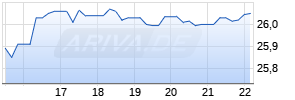
Nearly half of Canadian homeowners aren't prepared for emergency expenses: Manulife Bank survey
Canada NewsWire
WATERLOO, ON, Nov. 24, 2016
- One third of Millennials say mortgage rates are too high
- Generation X lacks confidence about their ability to afford retirement
- Baby Boomers may need to access home equity to meet retirement income goal without moving
TSX/NYSE/PSE: MFC SEHK: 945
WATERLOO, ON, Nov. 24, 2016 /CNW/ - Almost half of Canadian homeowners don't have enough money set aside to deal with a financial emergency, while four in 10 have some difficulty managing common expenses associated with home ownership, a new survey by Manulife Bank of Canada shows.
About one quarter of those polled have $1,000 or less set aside for an emergency, and another quarter of respondents don't know how much emergency savings they have. Millennial homeowners (those aged 20 – 34 years) report the lowest median amount of emergency funds among the respondents, at just $3,500. Among homeowners with mortgage debt, 38 per cent said they have some difficulty affording their mortgage, utilities and maintenance.
"It's undoubtedly stressful living paycheque-to-paycheque," said Rick Lunny, President and Chief Executive Officer, Manulife Bank of . "If you don't have extra cash at the end of the month, it's very difficult to build a rainy-day account. For those who find themselves in this situation – a good place to start is working with an advisor to create a budget. Many people are surprised at how much of their money is going toward things that they don't consider that important."
On average, Canadian homeowners with a mortgage reported $174,000 in mortgage debt, and more than one quarter of their net income goes towards making mortgage payments. However, almost three in 10 homeowners spend more than 30 per cent of their net income on mortgage payments. The average price of a Canadian home in July was $480,742 according to the Canadian Real Estate Association.
In addition, more than one third of mortgage holders would have difficulty making their regular mortgage payment within three months if the main income earner in their household lost their job. Manulife Bank recommends homeowners have enough emergency savings to cover three to six months of expenses.
"A financial buffer is an important part of a financial plan," said Lunny. "A high-interest savings account is a good option. Or, if you've got a home equity line of credit, you could use your savings to reduce your debt and save interest - and still have access to that money if an emergency arises."
One third of mortgage holders say they could manage a mortgage payment increase of up to 10 per cent without encountering any financial difficulty and about 40 per cent could manage an increase of 20 per cent or more. However, one in six respondents would encounter financial difficulty with any increase to their mortgage payment.
According to Manulife Bank's mortgage calculator, a homeowner with a mortgage balance of $174,000, an interest rate of 2.89 per cent and a 20-year amortization period would have monthly payments of $954. For payments to increase 10 per cent to $1,049 per month, the interest rate would need to increase by just over one per cent.
Many are taking advantage of low interest rates to reduce debt
More than four in 10 homeowners say they are taking advantage of the low interest-rate environment to pay down their debt more quickly while just one in 10 are using low rates to place less focus on debt repayment. Almost half of Millennials and Generation X (those aged 35 to 51 years) are using low rates to accelerate debt repayment, while just one third of Baby Boomers (52 to 69 years) are doing so.
Millennials and their money
Millennials were more likely to say that mortgage rates are currently too high, with 36 per cent of them feeling that way, compared to just 11 per cent for Baby Boomers.
"The survey results may be more reflective of monthly mortgage costs - which are a function of debt and interest rates," said Philip Petursson, Chief Investment Strategist, Manulife Investments. "Perhaps the emphasis is misplaced on interest rates, given the fact that interest rates are at decade lows, as opposed to the real driver of higher mortgage costs, which is housing prices."
The average chartered bank posted five-year fixed mortgage rate was at 4.64 per cent in June, a 40-year low, according to Statistics Canada. By comparison, the rate was 21.75 per cent in September 1981.
In addition, almost four in 10 Millennials indicated their home needed repairs that they couldn't afford, higher than Generation X and Baby Boomers.
Millennials are also more comfortable than other generations with carrying a credit card balance. Thirty-one per cent of millennial respondents felt it's not a "big deal" if they carry a balance on their credit cards. By comparison, only 24 per cent of Gen X respondents and 21 per cent of Baby Boomers felt the same way.
Among those surveyed, 17 per cent of Millennials have no mortgage debt. That compares to 24 per cent for Gen X respondents and 57 per cent for Baby Boomers.
Gen X concerned about saving for retirement
About one in three Gen X respondents expressed confidence in their ability to maintain their lifestyle in retirement, compared to 41 per cent for Millennials and 45 per cent for Baby Boomers. Not being able to save for retirement was noted as the top source of stress for Gen X respondents (41 per cent), followed closely by not having enough time for everything (40 per cent).
Boomers confronted with expectations versus reality in retirement
Seventy-nine per cent of Baby Boomers said they would prefer to live in their current home in retirement. Yet, 22 per cent indicate their home will represent more than 80 per cent of their wealth when they retire, and a further 18 per cent say it will represent between 61 and 80 per cent of their wealth.
"Manulife Bank's survey adds to the evidence that low interest rates and rising house prices in some key cities are permeating the consumer psyche," said Frances Donald, Senior Economist, Manulife Asset Management.
For more information visit, ManulifeBank.ca/debtresearch
About the Manulife Bank of Canada Debt Survey
The Manulife Bank of Canada poll surveyed 2,372 Canadian homeowners in all provinces between ages 20 to 69 with household income of $50,000 or more. The survey was conducted online by Environics Research between June 28 and July 8, 2016. National results were weighted by province, income and age.
About Manulife Bank
Established in 1993, Manulife Bank was the first federally regulated bank opened by an insurance company in Canada. It is a Schedule l federally chartered bank and a wholly-owned subsidiary of Manulife. As Canada's first advisor-based bank, it has successfully grown to more than $22 billion in assets and serves clients across Canada.
About Manulife
Manulife Financial Corporation is a leading international financial services group providing forward-thinking solutions to help people with their big financial decisions. We operate as John Hancock in the United States, and Manulife elsewhere. We provide financial advice, insurance and wealth and asset management solutions for individuals, groups and institutions. At the end of 2015, we had approximately 34,000 employees, 63,000 agents, and thousands of distribution partners, serving 20 million customers. At the end of September 2016, we had $966 billion (US$736 billion) in assets under management and administration, and in the previous 12 months we made more than $24.4 billion in benefits, interest and other payments to our customers. Our principal operations are in Asia, Canada and the United States where we have served customers for more than 100 years. With our global headquarters in Toronto, Canada, we trade as 'MFC' on the Toronto, New York, and the Philippine stock exchanges and under '945' in Hong Kong. Follow Manulife on Twitter @ManulifeNews or visit manulife.com or johnhancock.com.
SOURCE Manulife Financial Corporation

Mehr Nachrichten zur Manulife Financial Corp Aktie kostenlos abonnieren
(Mit der Bestellung akzeptierst du die Datenschutzhinweise)

Hinweis: ARIVA.DE veröffentlicht in dieser Rubrik Analysen, Kolumnen und Nachrichten aus verschiedenen Quellen. Die ARIVA.DE AG ist nicht verantwortlich für Inhalte, die erkennbar von Dritten in den „News“-Bereich dieser Webseite eingestellt worden sind, und macht sich diese nicht zu Eigen. Diese Inhalte sind insbesondere durch eine entsprechende „von“-Kennzeichnung unterhalb der Artikelüberschrift und/oder durch den Link „Um den vollständigen Artikel zu lesen, klicken Sie bitte hier.“ erkennbar; verantwortlich für diese Inhalte ist allein der genannte Dritte.




